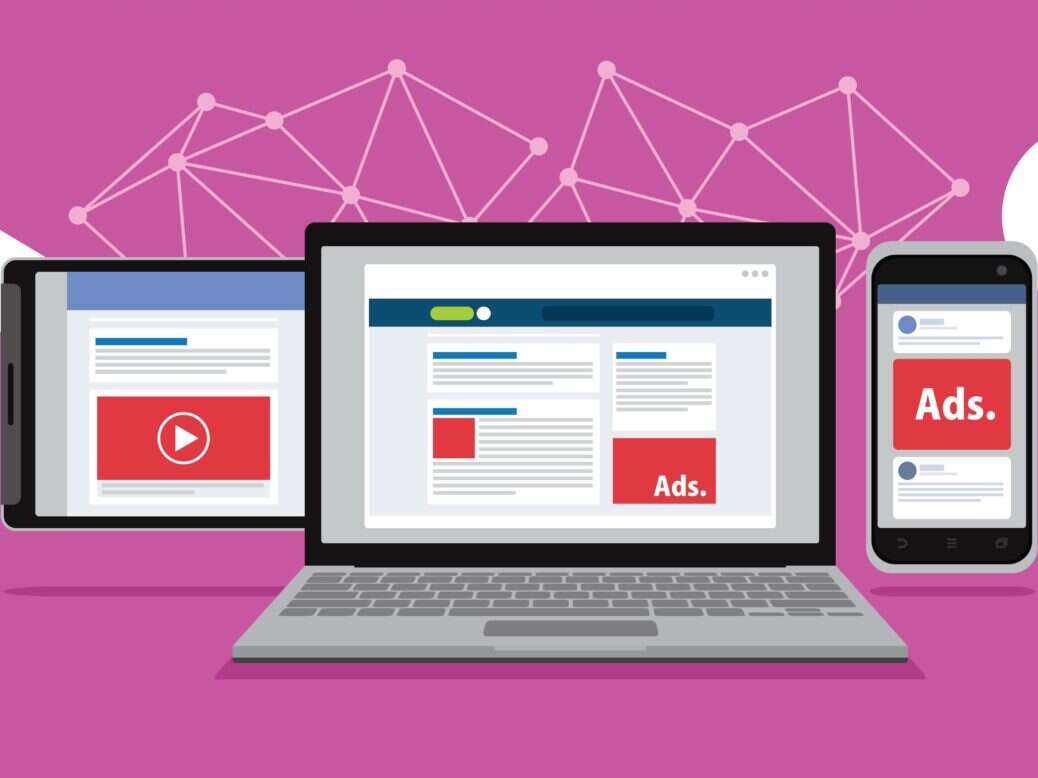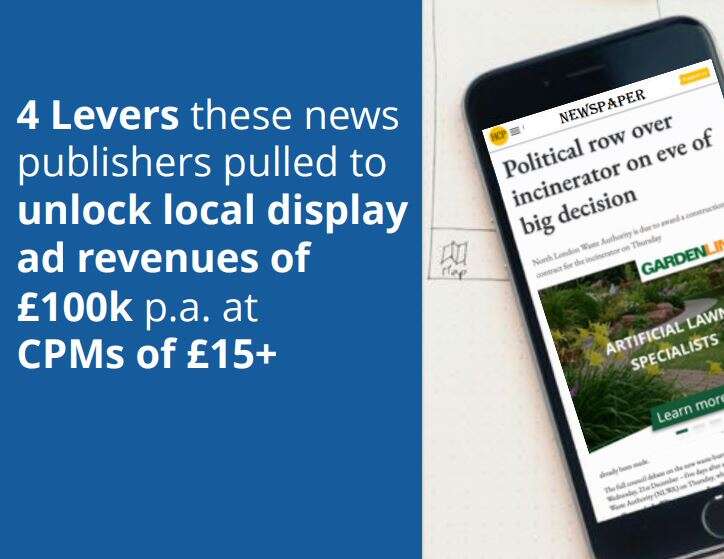
Partner content*: News publishers are losing out on “easy” revenues by failing to enhance their digital advertising offer for existing small and medium-sized business (SMB) print advertisers, says a company offering a “hassle-free” adtech solution for publishers.
Smartico’s Smartads service takes any print ad sold to a small or medium-sized business and turns it into a “mobile-first, swipe-able, high quality ad with the landing page that goes with it”.
The service offers publishers a way to help mitigate the ongoing decline in print advertising that has followed declining newspaper sales amid the disruption caused by digital, a situation only exacerbated by the Covid-19 pandemic as lockdowns hit circulation figures.
“What we’re doing is giving the publisher a tool whereby they can add revenue at no cost to them whatsoever,” says Smartico’s UK lead Justin Lello. The service works on a revenue sharing model – about 30% of new digital ad sales – or publishers can opt for a fixed fee.
[Read more: How news publishers can instantly grow their direct-sales display ad business]
Smartico’s own creative team builds the digital ads from existing print versions, adding content from relevant sources, and landing pages, as well as training up a newsbrand’s in-house sales team.
It’s a solution that has already been taken up by local publishers in German-speaking Europe, where Smartico trades as Transmatico since its creation in 2013 chief executive Christian Scherbel.
 How to unlock £100k of local display revenue
How to unlock £100k of local display revenue
Promoted whitepaper from Smartico details how publishers turned print advertising into online display revenue using smart automation.
Client Schwäbisch Media has seen revenues of €300,000 with a circulation of 200,000 using Smartads.
Publishers typically auto-bundle the digital offering alongside print, but others choose to upsell.
Smartico is now looking to bring is Smartads solution to publishers in the UK.
“The print ad decline is happening, but we can provide a solution to slow it down, to give newspaper publishers more revenue from some of their really important customers,” says Lello.
“It’s about how do we maximise the relationship that we have with the small medium businesses – the hairdressers, the restaurant owner, the plumber. How do we take that existing relationship and turn it into revenue? That’s the problem we’re helping to solve.”
Creating incremental value by turning print advertisers into digital ones
Lello says finding a new customer is harder than upselling or retaining an existing one. He says Smartico is helping publishers target the “huge long-tail of existing advertising customers” already buying print ads. “We’re providing a product that helps solve the problem of converting a print advertiser into a digital advertiser to create that incremental revenue.”
[Read more: Smartico – Print to digital advertising automation technology]
While it might be worthwhile for publishers to spend time and resource creating digital advertising for their largest clients, the SMBs, many of them loyal print advertiser, are often left behind because it is seen as too expensive and too difficult to enhance their offer.
“We’ve come along with an efficient process that does make it worthwhile doing because it’s zero effort [for the publisher],” says Lello. “We look after everything with full service.
“We train up the salespeople and put a lot of effort into making sure that they have the right tools and use the right language to sell the campaigns. Once they’re trained up and once they realise how easy it is to either auto-bundle the ads or sell them as an add on to the print ad, then it starts working for them and they start seeing revenues.”
Through its experience working with clients, Smartico has found that it only takes about a month of selling for the sales team to be fully on board. “We’ve got a huge amount of experience of working with local newspapers across Europe, where we see time and time again that the sales teams embrace this product,” adds Lello. “It’s a solution that makes their offering look better.”
Publisher adtech to rival Google and Facebook
Much of the ad market decline in news publishing has been the longer-term result of Facebook and Google swallowing the lion’s share of digital ad spend and new money. But Lello says that Smartico’s Smartads solution offers something neither tech giant does.
“To advertise on Facebook or Google, effectively they’re self-service platforms so you have to have a degree of knowledge and understanding of that type of marketing to be able to utilise their tools… whereas we do everything for you. All you have to do is tick the box or say ‘yes’.
“We create the ad. We create the landing page where we put call to actions for the potential client for that advertiser. We take away the complexity that there is in booking self-service campaigns. We provide the full bundle.”
He adds that in building the landing page for the ad campaign, Smartico is “able to understand what people are doing when they click on the ads, which is something Google and Facebook can’t do”.
“What we’re trying to do is change the dialogue here and move away from banners, clicks and click-through rates to attention. So how much attention have people paid to your ad?
“And because we own the value chain, from the ad itself through to the landing page, we’re able to report that back to the advertiser in a way that they can understand and they can see the success.
“We can actually say: ‘Look, these are the actions people took when they saw or clicks on your ad.’ So it gives them a much better and efficient way of analysing their ad spend.
“That’s a really key differential between us and Google and Facebook. That sets us aside.”
Future-proofing publishers for the cookie-less web
Building stronger relationships between trusted brands and loyal advertisers is something that looks all the more enticing for publishers as we head towards the Cookie-less web.
Third-party cookies are set to be phased out altogether when Google stops using them in 2023. Other browsers have already taken action. The result will be an internet that puts privacy first for users and one that will reward first-party relationships – those direct between brand and customer.
Lello, who has worked in media sales since the 1990s, says it is “fantastic for publishers that the cookie is dying” as focus will return to content from trusted brands.
“Rather than targeting an audience where you don’t know where your ad is going to appear, as you do in programmatic advertising with Google, for example, suddenly being able to target the context of your product becomes so much more important.
“With local advertisers, what they’re interested in is reaching their local communities, people in small areas, they’re not so interested in reaching people outside of that area. So, contextual targeting and trust becomes key again and, of course, local newspapers can offer that in abundance.”
He adds of the death of cookies: “I think it’s a great opportunity for them to maximise their revenues. And what we do is we take this long tail of small medium businesses and say ‘maximise your revenues with them, we’ll give you the tools with which to do that’.”
*This article was sponsored by Smartico.
Exclusive offer for Press Gazette Readers: Reach out to Smartico to get a 30-minute video call with CEO Christian to see matching business cases out of 200 media companies that could make you more regional advertising revenues instantly. And receive a free demo/transformation of an advertorial/magazine or print ad into a Smartico campaign at the end.
Email pged@pressgazette.co.uk to point out mistakes, provide story tips or send in a letter for publication on our "Letters Page" blog
